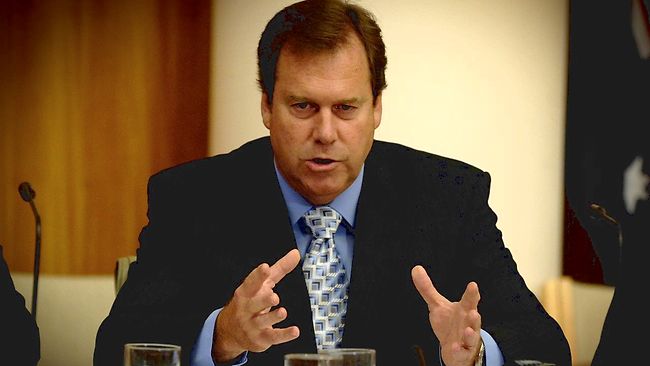ATO seeks waiver to hunt data on taxpayers' investments
THE Taxation Office wants a permanent exemption from privacy guidelines covering its data-matching operations to compile dossiers on taxpayer.
THE Australian Taxation Office wants a permanent exemption from privacy guidelines covering its data-matching operations to compile dossiers on taxpayers' property arrangements and investments.
The tax office is one of the commonwealth agencies leading the fight in the data wars, using largely automated systems to deal with tax fraud and assist other agencies in their investigations.
For its data-matching operations, where tax returns and declarations are cross-matched with publicly or privately held information to reveal any anomalies, the ATO abides by voluntary guidelines set down by the Privacy Commissioner.
But documents obtained by The Australian under Freedom of Information laws show the ATO wants to remove restrictions on how long it can store data on property transactions, securities, rental bonds and from the Foreign Investment Review Board.
The guidelines are meant to strike a balance between an individual's right to privacy and the right of the government to protect its resources and citizens.
They require data where no match has been found to be destroyed "as soon as practicable" and ideally within 90 days.
While the Privacy Commissioner has already granted the ATO short-term extensions in relation to banking and property data -- still subject to the data being destroyed within several years -- an ATO review recommended the agency seek a "permanent departure" from the guidelines for the four data types.
A spokeswoman for Privacy Commissioner Timothy Pilgrim said the ATO lost its first request for a permanent exemption in 2008 when the review was conducted.
However, an ATO spokesman claimed the Privacy Commissioner in 2009 granted a six-year extension "pending a decision on a permanent exemption".
Mr Pilgrim, through his spokeswoman, said the guidelines -- which Centrelink and the Department of Veterans' Affairs also follow -- would be reviewed.
"This will ensure that they reflect current practices which can change over time, for example, as a result of technological developments," Mr Pilgrim said.
ATO deputy commissioner Shane Reardon, who oversees data-matching operations, said individuals and entities did not always file correct returns on time and it would be beneficial to hold some data long-term.
He said data-matching helped the ATO determine whether there were compliance issues -- clearing those who had fulfilled their obligations -- or whether to investigate specific areas of non-compliance.
"Last year, we received information about 230 million share ownership and disposal transactions and another 25 million transactions associated with property ownership and disposal," he said. "We raised $117 million from shares and property."
Some data-matching projects are so successful they are entrenched in law; others, such as the luxury boats project, are inconclusive and discontinued.
The ATO recently gave its 4000 auditors profiling and risk assessment software to help analyse an individual or entity's wealth and connections, with an algorithm to predict the likelihood of future breaches.
Mr Reardon said such technology -- now used only for the wealthy -- could help the ATO act before a problem arose.
"We'd rather alert people that we have this information and urge them to get it right rather than chase them up in audit," he said.



